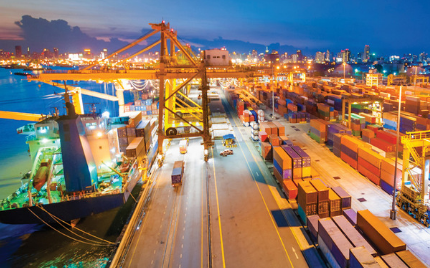In order to investigate the different levels of experience and maturity required for sustainability practices and what are the benefits that these practices bring into the organization, APICS conducted a survey over 9000 supply chain professionals. The evolving new technologies and improved processes along with the stakeholder preferences, sustainability has become the integrated process with the traditional supply chain.
Posts from category "Articles"
The UN Global Compact is the controller platform for the advancement, implementation, and disclosure of authoritative and feasible corporate policies and practices. It seeks to order business practices and scenarios everywhere with ten globally accepted theorems in the areas of Environment, Human Rights and Anti-Corruption.
The UN Global Compact Management Model is a dynamic framework developed in consulting with corporate sustainability and management experts, leading people from civil society and academia in the objective of helping companies to obtain high level performances and to create real and everlasting value for the business as well as the society.
The Global Reporting Initiative (GRI) was created to make the Sustainability Reports internationally agreeable with disclosures and metrics enabled information so that the stakeholders can access, compare and make informed decisions. In this way, the G4 guidelines provide reporting fundamentals, standard publications and implementation standards for the development of the sustainability reports by organizations regardless of their
Security risks can create a major impact in any business. These security risks can come in any form. Transport operators who anticipate these risks and plans accordingly can recover more quickly than others. Many of the larger transport operators has their own Security and Risk Management system but the smaller and medium sized operators may be less equipped to meet the demands of the security risks when they appear.
Supply chain managers and Researchers continue to pursue to integrated supply chain management across the business and companies. Some of the general processes in organizations show that both the sales and financial managers are happy to endure integrated supply chain management for limited targets of greater importance to them.
Supply Chain Management (SCM) is the process of flow of goods and services that involve progression and storage of raw organic materials, of work-in-process itemization and of finished goods from the point of influence to the point of expenditure. Supply chain management has been defined as the layout, devising, execution, rule and auditing of supply chain activities with the objective of constructing an aggressive
Categories
Association For Supply Chain Management (ASCM), USA
- Default
- Title
- Date
- Random
-
Read More
Certified Supply Chain Certification Program popularly known as CSCP from APICS, USA aids an individual to prepare and showcase ones knowledge and skills in the supply chain operations of an organization.
Register for Complimentary Demo Session
Download CSCP Brochure
CSCP Success Stories -
Read More
Certified in Logistics, Transportation and Distribution (CLTD) certifications aims at providing in depth know-how to become a recognized authority in the fields of logistics management, transportation & distribution.
Register for Complimentary Demo Session
Download CLTD Brochure
CLTD Success Stories
Join IISCM Supply Chain Network -
Read More
Certified in Production and Inventory Management (CPIM) credential from APICS, USA is considered to be the gold standard in the area of production & inventory management and control.
Register for Complimentary Demo Session
Download CPIM Brochure
CPIM Success Stories



